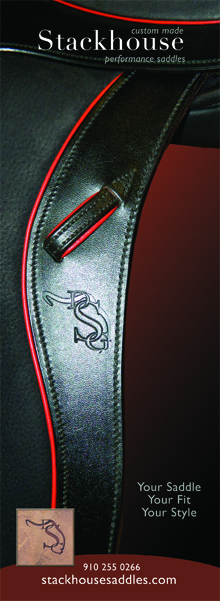Search the Site
Question #8: (Current freebie!) I have had a few years off from regular training and competition, and only competed in a few novice events anyway, and I would like some help in goal setting and a training program for myself and my new horse.
We are only doing flat work and light hacking at the moment, mostly getting the basics back, but I would really like to go to some competitions this year. Any suggestions on how to set goals for myself and my new horse? She has competed in a few unrecognized novice events, but it has been a couple of years and she was competed by a professional. (Cheryl)
Hi Cheryl!
Congratulations on your new horse!! I'm looking forward to watching you two become a team! Since she is new to you, and you both have been out of competition for a while, I would recommend that you really take the time to bond and get to know each other before you start competing. And it might be wise to ease into competition gradually by starting off with a dressage show or a schooling jumper show, instead of an event. That way you can see exactly what your new horse will be like away from home, and how she reacts to any show ring nerves that you may have. So pick one or two schooling type shows for late spring or early summer that may be a posibility. If you find that you don't feel ready as the dates get closer, that's no problem. Just skip those and look for something late summer or early fall. But I think that it really helps a rider to motivate themselves and ride with more focus, when they have some goals in the immediate future to strive for.
Here is a sample work week for the typical novice level horse:
Monday: day off
Tuesday: hacking and/or stretching flatwork (45 min to an hour+)
Wednesday: serious dressage school (approx 45 min)
Thursday: jumping school - gridwork (approx 45 min)
Friday: hacking and/or stretching flatwork (45 min to an hour+)
Saturday: serious dressage school (approx 45 min)
Sunday: jumping school - course work or cross country school (approx 45 min)
This schedule is of course very flexible, so if you need to switch days around, or give extra days off for any reason, go ahead.
But as a rule I like to alternate harder days with easier days, which I feel gives the horse's body a chance to recover from the harder days. This can go a long ways towards preventing injuries.
And for both mental and physical reasons, I like to make sure that I vary the content of the work, to keep the horse fresh. If possible, I also vary the location of the work. Sometimes working in the ring, and often working out in different areas of the fields.
On your hacking days, alternate walk, trot, and canter as conditions warrant. And try to incorporate some hillwork if you have any hills available to you. As there is no better way to strengthen your horse.
At this level, there is usually no real need to do structured trot or canter sets for fitness, but you can if you want to. You could gradually build up to 3 ten minute trot sets with a two or three minute walk break in between. And you could gradually build up to 3 three minute canter sets, again with a two or three minute walk break in between. This is a good time to build up your own strength by practicing your two point position! And you will get a feel for how easy or hard it is to keep your horse cantering around a field in balance and rhythm.
On your dressage or jumping days, feel free to hack some as well. If she tends to start off tense, you may find that a 15 to 20 minute hack before more serious work will really help her settle.
And I am a big believer in stopping serious work and going for a hack the minute the horse catches on to a new concept, or does something well that he/she finds difficult. So even if I've planned to do a 45 minute dressage school, if my horse is going really, really well after 25 minutes, I'm likely to stop and go for a hack. I think horses really appreciate that, and try harder for you. Sometimes a riders natural tendency is to quit when things are not going well, and to keep going longer when things are going well because they are enjoying it so much! I find the opposite approach is usually more successful.
When I was training Felix (my Advanced horse) to do flying changes in dressage, something he had a real mental issue with, I would plan to work on them near the end of a ride. And if he had one good attempt, I would immediately reward and end the ride. With that thought process, he gradually went from being a nervous wreck about flying changes, to actually looking forward to them, and feeling quite proud of himself when he was able to do them!
A few months the above schedule should have you both fit enough for novice level eventing. But you will of course want to make sure that you also have all of the skills that are tested at your level for each phase of eventing. In dressage, you and your horse should be working in harmony. Showing forward, relaxed, and rhythmical gaits, with acceptance of the aids, and smooth transitions. In cross country, you and your horse should be comfortable cantering out in the fields on undulating terrain, jumping solid jumps out of a steady rhythm. In stadium, you and your horse should be able to negotiate courses in fairly good balance and rhythm. It should feel smooth to you.
You don't need to wait until you're perfect! No one is ever perfect! But you should feel fairly solid and confident that you can do all phases fairly smoothly before entering an event. There is almost always at least one blunder in dressage, and/or at least one bad jump on cross country or stadium! This is true for everyone at all levels! So laugh off those bad moments, and focus on the ride to the next.
Good luck Cheryl! Keep us all posted on your progress!
Hi Cheryl!
Congratulations on your new horse!! I'm looking forward to watching you two become a team! Since she is new to you, and you both have been out of competition for a while, I would recommend that you really take the time to bond and get to know each other before you start competing. And it might be wise to ease into competition gradually by starting off with a dressage show or a schooling jumper show, instead of an event. That way you can see exactly what your new horse will be like away from home, and how she reacts to any show ring nerves that you may have. So pick one or two schooling type shows for late spring or early summer that may be a posibility. If you find that you don't feel ready as the dates get closer, that's no problem. Just skip those and look for something late summer or early fall. But I think that it really helps a rider to motivate themselves and ride with more focus, when they have some goals in the immediate future to strive for.
Here is a sample work week for the typical novice level horse:
Monday: day off
Tuesday: hacking and/or stretching flatwork (45 min to an hour+)
Wednesday: serious dressage school (approx 45 min)
Thursday: jumping school - gridwork (approx 45 min)
Friday: hacking and/or stretching flatwork (45 min to an hour+)
Saturday: serious dressage school (approx 45 min)
Sunday: jumping school - course work or cross country school (approx 45 min)
This schedule is of course very flexible, so if you need to switch days around, or give extra days off for any reason, go ahead.
But as a rule I like to alternate harder days with easier days, which I feel gives the horse's body a chance to recover from the harder days. This can go a long ways towards preventing injuries.
And for both mental and physical reasons, I like to make sure that I vary the content of the work, to keep the horse fresh. If possible, I also vary the location of the work. Sometimes working in the ring, and often working out in different areas of the fields.
On your hacking days, alternate walk, trot, and canter as conditions warrant. And try to incorporate some hillwork if you have any hills available to you. As there is no better way to strengthen your horse.
At this level, there is usually no real need to do structured trot or canter sets for fitness, but you can if you want to. You could gradually build up to 3 ten minute trot sets with a two or three minute walk break in between. And you could gradually build up to 3 three minute canter sets, again with a two or three minute walk break in between. This is a good time to build up your own strength by practicing your two point position! And you will get a feel for how easy or hard it is to keep your horse cantering around a field in balance and rhythm.
On your dressage or jumping days, feel free to hack some as well. If she tends to start off tense, you may find that a 15 to 20 minute hack before more serious work will really help her settle.
And I am a big believer in stopping serious work and going for a hack the minute the horse catches on to a new concept, or does something well that he/she finds difficult. So even if I've planned to do a 45 minute dressage school, if my horse is going really, really well after 25 minutes, I'm likely to stop and go for a hack. I think horses really appreciate that, and try harder for you. Sometimes a riders natural tendency is to quit when things are not going well, and to keep going longer when things are going well because they are enjoying it so much! I find the opposite approach is usually more successful.
When I was training Felix (my Advanced horse) to do flying changes in dressage, something he had a real mental issue with, I would plan to work on them near the end of a ride. And if he had one good attempt, I would immediately reward and end the ride. With that thought process, he gradually went from being a nervous wreck about flying changes, to actually looking forward to them, and feeling quite proud of himself when he was able to do them!
A few months the above schedule should have you both fit enough for novice level eventing. But you will of course want to make sure that you also have all of the skills that are tested at your level for each phase of eventing. In dressage, you and your horse should be working in harmony. Showing forward, relaxed, and rhythmical gaits, with acceptance of the aids, and smooth transitions. In cross country, you and your horse should be comfortable cantering out in the fields on undulating terrain, jumping solid jumps out of a steady rhythm. In stadium, you and your horse should be able to negotiate courses in fairly good balance and rhythm. It should feel smooth to you.
You don't need to wait until you're perfect! No one is ever perfect! But you should feel fairly solid and confident that you can do all phases fairly smoothly before entering an event. There is almost always at least one blunder in dressage, and/or at least one bad jump on cross country or stadium! This is true for everyone at all levels! So laugh off those bad moments, and focus on the ride to the next.
Good luck Cheryl! Keep us all posted on your progress!







3 Comments Posted Leave a comment